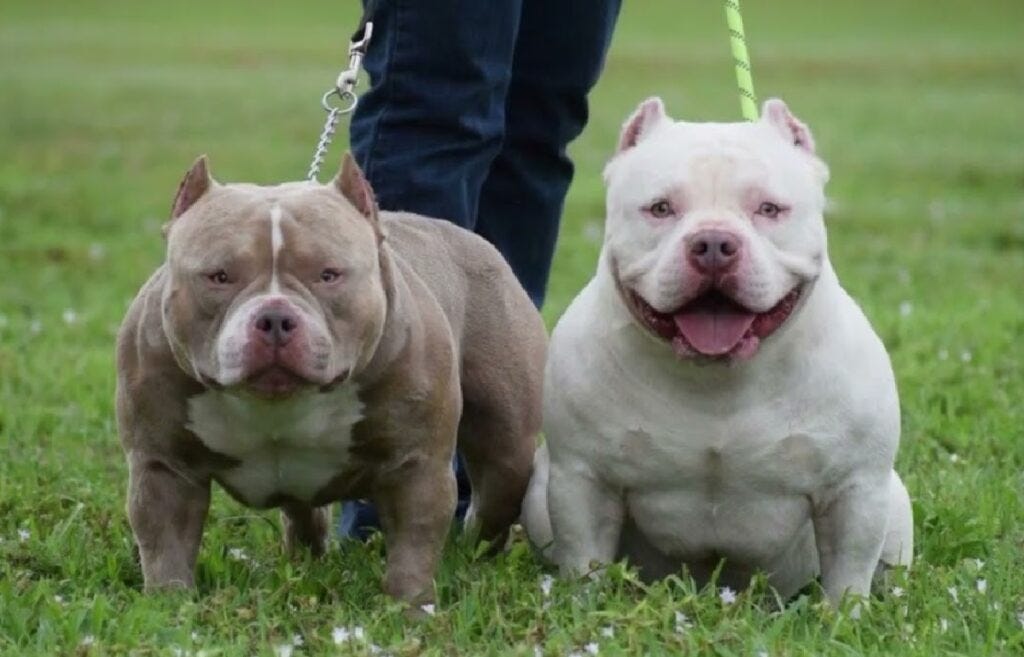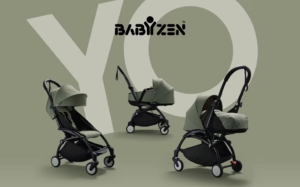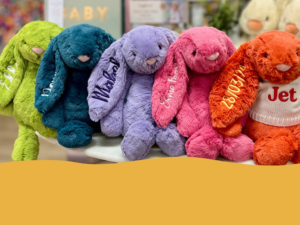
miniature pitbull
The Miniature Pitbull is a captivating and misunderstood breed. Known for their loyal nature, muscular build, and energetic demeanor, these small-sized Pitbulls have been winning hearts all around the world. But before diving into the world of Miniature Pitbulls, there are a few important things potential owners should know. This guide covers everything from the breed’s history and temperament to health, care, and training tips.
1. What is a Miniature Pitbull?

The Miniature Pitbull is not a distinct breed recognized by major kennel clubs. Instead, it’s typically a crossbreed between the American Pitbull Terrier and a smaller breed like the Patterdale Terrier. As a result, Miniature Pitbulls are essentially a downsized version of the American Pitbull Terrier but retain many of the same qualities that have made Pitbulls popular.
The miniature size of these dogs makes them attractive for individuals and families who want the look and temperament of a Pitbull but prefer a smaller, more manageable dog for apartment living or smaller spaces. These dogs typically weigh between 11 to 22 pounds and stand about 12 to 16 inches tall, which is a noticeable difference compared to a standard Pitbull.
Despite their small stature, they have a bold personality. They’re confident, strong-willed, and require owners who understand their needs. Like all dogs, they need mental and physical stimulation to stay happy and healthy.
2. The Origins and History of Miniature Pitbulls

The history of Miniature Pitbulls is tied to the American Pitbull Terrier, a breed with a deep and complex history that stretches back centuries. Pitbulls originated in the United Kingdom and were originally bred for bull-baiting, a cruel sport that involved dogs attacking bulls. When the sport was banned in the early 1800s, these dogs were bred to be less aggressive toward humans, but their toughness and stamina remained.
The creation of the Miniature Pitbull came much later. In recent decades, breeders began to cross smaller terriers like the Patterdale Terrier with the Pitbull to create a dog with similar traits but in a smaller package. These crosses resulted in the compact yet muscular dogs that have become known as Miniature Pitbulls.
While Miniature Pitbulls are not yet a recognized breed by major dog organizations like the American Kennel Club (AKC), they are gaining popularity among dog lovers who appreciate their small size and big personalities. The desire for a “miniature” version of larger dogs has increased as people move into smaller living spaces and want companions that fit into their lifestyle.
3. Characteristics of a Miniature Pitbull
Size and Appearance:
Miniature Pitbulls may be small, but they still pack a punch when it comes to their physical appearance. With a broad chest, muscular build, and a strong, square head, these dogs look like they mean business. Their coats are short, smooth, and come in a variety of colors, including black, white, brindle, blue, and fawn. Despite their compact size, Miniature Pitbulls often have a powerful presence.
One of the most distinctive features of Miniature Pitbulls is their expressive eyes, which can vary in color but often carry an intense and intelligent look. Their ears may be cropped or left natural, depending on the preference of the owner.
Temperament and Personality:
Miniature Pitbulls are known for their loyalty and affection towards their families. They form strong bonds with their owners and often become extremely attached. This breed thrives in a loving environment where they are treated as part of the family. Despite their reputation, Miniature Pitbulls are typically friendly, confident, and playful dogs when socialized properly from a young age.
However, like their larger counterparts, Miniature Pitbulls can be stubborn and require firm, consistent training. They are intelligent dogs, but they need an owner who can provide clear boundaries and guidance. Without proper training and socialization, they may develop behavioral issues like excessive barking, chewing, or anxiety.
Energy Levels and Exercise Needs:
One thing is for sure: Miniature Pitbulls are not couch potatoes. They are active, energetic dogs that require daily exercise to burn off their abundant energy. Owners should be prepared to provide them with at least 30 to 60 minutes of exercise each day, which can include walks, playtime, or even agility training.
Without enough physical activity, a Miniature Pitbull can become bored, which may lead to destructive behavior. These dogs thrive when they have a job to do, whether that’s playing fetch, going for a run, or participating in dog sports. It’s important to keep them mentally stimulated as well as physically active.
4. Training and Socialization of a Miniature Pitbull
Training a Miniature Pitbull can be both rewarding and challenging. Like all dogs, they need early socialization and obedience training to become well-adjusted adults. Due to their stubborn nature, training requires consistency, patience, and positive reinforcement.
Early Socialization is Key:
One of the most important aspects of training any dog is socialization, and Miniature Pitbulls are no exception. Introducing them to new environments, people, and other animals at a young age helps reduce any aggressive tendencies and makes them more adaptable. The more experiences they have early on, the more well-rounded they will become.
Socialization doesn’t just mean exposure to other dogs; it also includes new sights, sounds, and smells. Trips to the park, short car rides, and meeting different people can all help your Miniature Pitbull become comfortable in various situations.
Obedience Training Tips:
Given their intelligence, Miniature Pitbulls can pick up on commands quickly. However, their independent streak means they might not always obey right away, especially if they’re feeling headstrong. Positive reinforcement methods, such as treats, praise, and play, work best with this breed. Harsh training methods can lead to fear or aggression, so it’s important to use kindness and patience.
Consistency is key. Regular short training sessions that are fun and engaging can prevent boredom and make learning enjoyable for your dog. Basic commands like “sit,” “stay,” and “come” should be mastered early on, and more advanced tricks can be added later to keep them mentally stimulated.
Addressing Behavioral Challenges:
Miniature Pitbulls can sometimes exhibit behavioral problems if not properly trained. Some common issues include jumping on people, chewing furniture, and leash pulling. The good news is that with the right guidance, these behaviors can be managed.
To curb leash-pulling, for example, reward your dog when they walk calmly beside you and stop walking when they pull ahead. For destructive chewing, providing them with appropriate chew toys and discouraging bad behavior through redirection can help protect your belongings.
5. Health Considerations for Miniature Pitbulls
Miniature Pitbulls are generally healthy dogs, but like all breeds, they can be prone to certain health conditions. It’s important for owners to be aware of potential health issues and to take steps to ensure their dog remains as healthy as possible.
Common Health Problems:
Some of the health issues Miniature Pitbulls may face include:
- Hip Dysplasia: A condition where the hip joint doesn’t develop properly, leading to arthritis and pain later in life. Regular vet checkups and maintaining a healthy weight can help prevent or manage this condition.
- Allergies: Miniature Pitbulls can be prone to skin allergies, which may cause itching, redness, and discomfort. Allergies can be caused by food, environmental factors like pollen, or contact with certain materials.
- Heart Disease: Some Miniature Pitbulls may be at risk for heart conditions, including congenital defects or acquired heart disease. Regular veterinary checkups and a healthy diet can help monitor and manage heart health.
- Obesity: Like all dogs, Miniature Pitbulls can become overweight if they don’t get enough exercise or are overfed. Obesity can lead to a host of other health problems, including joint issues and heart disease.
Preventative Care:
Routine vet visits are essential for catching any potential health problems early. Vaccinations, parasite prevention, and regular dental care are also key components of maintaining your dog’s health.
A balanced diet tailored to your Miniature Pitbull’s age, weight, and activity level will ensure they get the nutrients they need. High-quality dog food with real meat as the first ingredient is ideal. Additionally, regular exercise will help keep your dog at a healthy weight and reduce the risk of obesity-related health problems.
The Importance of Spaying/Neutering:
Spaying or neutering your Miniature Pitbull can have significant health benefits, including reducing the risk of certain cancers and preventing unwanted behaviors like marking and aggression. It also helps control the pet population and reduces the number of homeless dogs in shelters.
6. Grooming and Care for Miniature Pitbulls
One of the great things about owning a Miniature Pitbull is that they are relatively low-maintenance when it comes to grooming. Their short, smooth coats don’t require much upkeep, but regular brushing will help keep their coat looking shiny and healthy.
Brushing and Bathing:
A quick brush with a soft-bristle brush or grooming mitt once a week is usually enough to remove loose hairs and reduce shedding. Miniature Pitbulls don’t have a strong odor, so they don’t need frequent baths. When they do get dirty, a bath with a gentle dog shampoo will suffice.
Nail Trimming:
Keeping your dog’s nails trimmed is important to avoid overgrowth, which can lead to discomfort or difficulty walking. If you can hear their nails clicking on the floor, it’s time for a trim. Many owners find it easier to have a professional groomer or vet handle nail trims, especially if the dog






